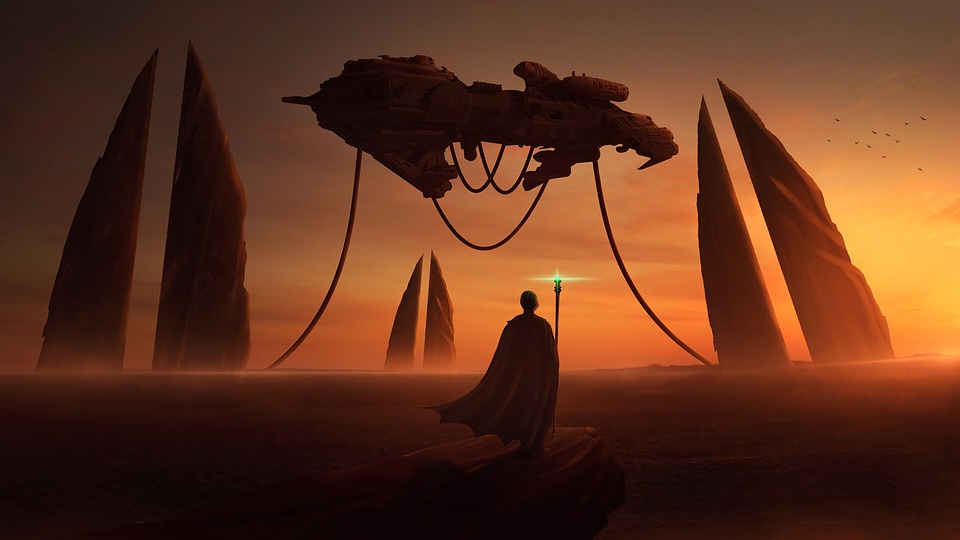The Changing Face of Society: An In-Depth Analysis
Introduction
Society is constantly evolving, shaped by a combination of technological advancements, cultural shifts, and changing demographics. In this article, we will take an in-depth look at how society has changed over the years and what these changes mean for the future.
Technological Advancements
One of the most significant factors driving change in society is technology. The advent of the internet, social media, and smartphones has revolutionized the way we communicate, work, and interact with one another. These advancements have made information more accessible, allowing us to connect with people from all over the world and share our thoughts and ideas instantaneously.
The Rise of social media
social media platforms like Facebook, Twitter, and Instagram have become integral parts of our daily lives, shaping how we communicate and perceive the world around us. These platforms have given a voice to marginalized groups, facilitated movements for social change, and created new avenues for self-expression.
The Sharing Economy
Another technological trend that has had a profound impact on society is the rise of the sharing economy. Services like Airbnb, Uber, and TaskRabbit have transformed how we travel, commute, and even work. This shift towards a more collaborative and interconnected economy has led to greater efficiency, flexibility, and accessibility for consumers.
Cultural Shifts
Alongside technological advancements, cultural shifts have also played a significant role in shaping society. Changing attitudes towards gender, race, and sexuality have led to greater inclusivity and diversity in our communities. Movements like #MeToo, Black Lives Matter, and LGBTQ rights have raised awareness about social issues and sparked important conversations about privilege, power, and representation.
The Rise of Individualism
One of the key cultural shifts in recent years has been the rise of individualism. In an increasingly globalized and interconnected world, people are more empowered to pursue their own goals and aspirations, rather than conforming to traditional societal norms. This shift towards individualism has led to greater personal freedom, creativity, and self-expression.
The Decline of Traditional Institutions
As society becomes more individualistic, traditional institutions like religion, marriage, and the nuclear family are facing challenges. More people are questioning the authority and relevance of these institutions, opting instead for alternative forms of spirituality, relationships, and community. This shift towards a more fluid and dynamic society has challenged long-standing norms and values, leading to a reevaluation of what it means to be part of a community.
Changing Demographics
Demographic shifts, such as aging populations, changing family structures, and increasing ethnic diversity, have also had a profound impact on society. These changes have reshaped how we define family, community, and identity, highlighting the need for greater understanding and empathy towards people from different backgrounds.
The Aging Population
With advances in healthcare and technology, people are living longer than ever before, leading to an aging population in many parts of the world. This demographic shift has significant implications for healthcare, pension systems, and social services, requiring us to rethink how we support older individuals and ensure their well-being in an increasingly interconnected society.
Changing Family Structures
The traditional nuclear family model is no longer the dominant form of family structure in many societies, with more people choosing to live alone, cohabit, or form non-traditional family units. This diversity in family structures reflects the changing attitudes towards relationships, gender roles, and cultural norms, highlighting the need for greater flexibility and acceptance in how we define family.
Increasing Ethnic Diversity
Globalization, migration, and urbanization have led to greater ethnic diversity in many societies, challenging traditional notions of identity, belonging, and citizenship. This diversity has enriched our cultural landscape, fostering greater understanding and appreciation for different perspectives and experiences. However, it has also highlighted the need for greater inclusivity, representation, and social cohesion in our increasingly diverse communities.
Conclusion
In conclusion, society is constantly evolving, driven by technological advancements, cultural shifts, and changing demographics. These changes have reshaped how we communicate, work, and interact with one another, leading to greater inclusivity, diversity, and individualism in our communities. As we navigate these shifts in society, it is essential to stay informed, open-minded, and empathetic towards people from different backgrounds, recognizing the value of diverse perspectives and experiences in shaping our shared future.
FAQs
1. How has technology changed society?
Technology has revolutionized how we communicate, work, and interact with one another, making information more accessible and connecting people from all over the world.
2. What cultural shifts have influenced society?
Cultural shifts towards inclusivity, diversity, and individualism have shaped how we perceive social issues, relationships, and identity in our communities.
3. What demographic changes are impacting society?
Demographic changes, such as aging populations, changing family structures, and increasing ethnic diversity, have reshaped how we define family, community, and identity in our interconnected world.

